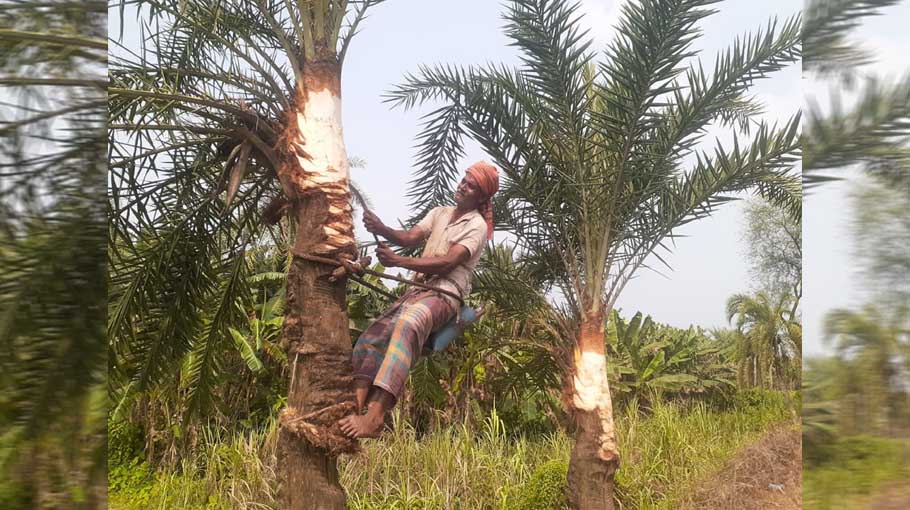All preparations complete, extractors await date sap


After completing all the preparations in Jibannagar upazila of Chuadanga, the date juice extractors are now waiting to collect date juice. Some are cutting the skin of the trees and putting earthen pots in different areas of the upazila to collect the juice.
Visiting in person, it can be seen that in the late autumn morning, the extractors are running to skin the date palms to make them suitable for juice collection. Many people are tying pots with the bark of the trees. Although they have not been able to collect sap from the trees yet, they have to cut down the trees every day.
The extractors are working to collect the sap tying rope around their waist by hanging from the trees. In the afternoon small and big earthen pots are tied on the trees.
The sap-filled pots are lowered in the morning. Later the raw juice is sold in the markets of different areas. Some people make molasses by heating the sap in the early morning.
Quader Mallick of Uthli village in Jibannagar upazila said work has started about 20 days ago. Dirty and unnecessary branches of trees have been cleared. The work of skinning and baring the golden part of the tree and installing the tube is also almost over. Juice collection will start in a few days, he added.
Read More: Don’t drink raw date sap
Liakat Hossain of Dehati village said that the traditional date juice of rural Bengal is associated with winter. After a couple of weeks the collection of sap from the tree will begin. He is prepared to collect sap from 80 trees including 40 of his own.
Abu Taleb of Katapol village said that at the rate at which date palms are vanishing, there will be no date palms in the country at one time. To protect this centuries-old tradition, we should plant more date palms like palm trees.
Ismail of Jadabpur village in the same upazila said molasses produced from the sap of date palm in Jibannagar is in great demand across the country. Every year a truckload of molasses goes to different parts of the country from this village.
He said that the work of making molasses from juice will start soon and continue till the Bengali month of Falgun. In a few days, date jaggary and molasses will start to appear in the markets.
Jibannagar Upazila Agriculture Officer Sharmin Akhter said there are about 37,500 date palm trees in Jibannagar Upazila. From the sap of these trees the molasses is produced.
After meeting the demand of molasses in the upazila, date molasses produced in the upazila will travel to various parts all over the country. He also said that about 7,500 people of the upazila are involved in this profession during every winter.




